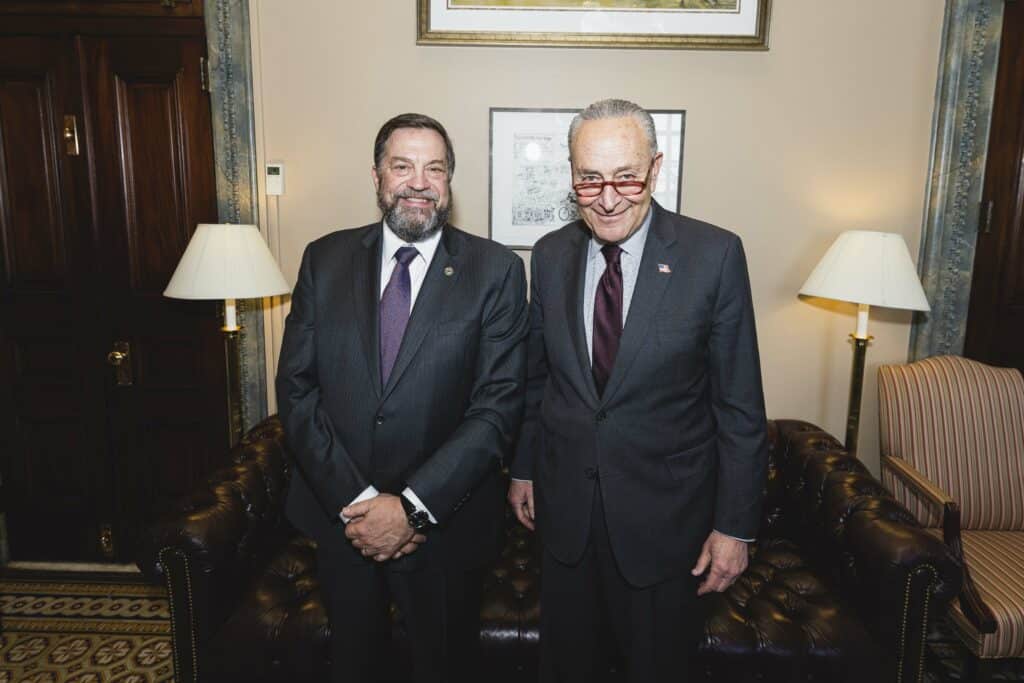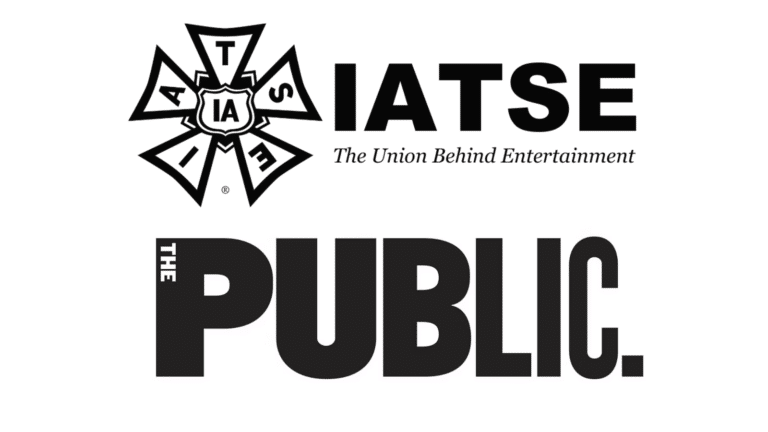A bipartisan working group led by Senate Majority Leader Chuck Schumer (D-NY), along with Sens. Heinrich (D-NM), Rounds (R-SD) and Young (R-IN), released a roadmap for artificial intelligence (AI) policy in the U.S. Senate, Wednesday.
This roadmap summarizes findings from the AI Insight Forums convened last year – participated in by IATSE International Vice President Vanessa Holtgrewe – and identifies policy areas of consensus that merit bipartisan consideration in the 118th Congress and beyond. The framework does not lay out specific legislation around AI, but provides direction to the Senate committees to craft bills related to various issues and impacts of AI.
“IATSE welcomes the release of a bipartisan roadmap for artificial intelligence policy led by Majority Leader Schumer, Senator Heinrich, Senator Rounds, and Senator Young. I thank Leader Schumer and the working group for convening last year’s AI Insight Forums and inviting IATSE to the table to share the perspective of behind-the-scenes entertainment workers,” said IATSE International President Matthew D. Loeb.
“As we urged during the forums,” he continued, “this roadmap prioritizes maintaining strong copyright and IP laws which are essential to protect the rights of working people who power the U.S. entertainment industry. I commend the assertion from the working group that workers and their unions must be consulted as AI is developed and deployed.”
In the roadmap, on issues key to IATSE workers, the bipartisan working group encourages the relevant Senate committees to:
Ensure that stakeholders – from innovators and employers to civil society, unions, and other workforce perspectives – are consulted as AI is developed and then deployed by end users;
Consider developing legislation to establish a coherent approach to public-facing transparency requirements for AI systems;
Consider federal policy issues related to the data sets used by AI developers to train their models, including data sets that might contain sensitive personal data or are protected by copyright, and evaluate whether there is a need for transparency requirements; and
Review the results of existing and forthcoming reports from the U.S. Copyright Office and the U.S. Patent and Trademark Office on how AI impacts copyright and intellectual property law, and take action as deemed appropriate to ensure the U.S. continues to lead the world on this front.
Congress must not only consider but proceed expediently with legislation. IATSE has endorsed the Generative AI Copyright Disclosure Act introduced in the House by Rep. Adam Schiff (D-CA). We continue to advocate for policies that maintain strong copyright laws, prioritize the people involved in the creative process, require transparency of generative AI training data sets and the use of AI & ML systems, and ensure entertainment workers are fairly compensated when their work is used to train, develop, or generate new works by AI systems.
President Loeb concluded, “We stand ready to push for strong legislation that will ensure consent, credit, compensation, and transparency. AI technologies aren’t waiting on word from Washington to develop, and so IATSE urges the Senate and House to legislate swiftly to protect entertainment workers from harm and promote economic opportunity.”











